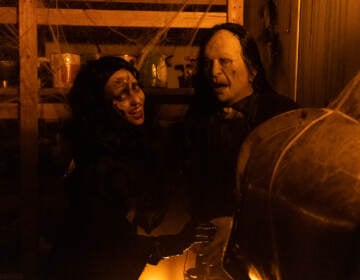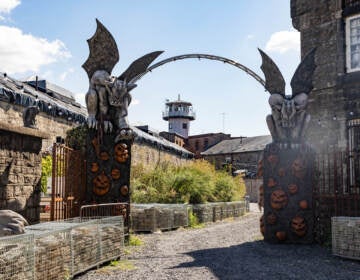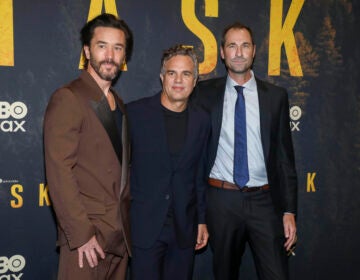Chester County farmer makes a horror movie to save the family farm
“Hayride to Hell” is a farmer’s bloody revenge on corrupt elected officials. The horror movie was made by a farmer who is an elected official in Chester County, Pa.
Listen 2:44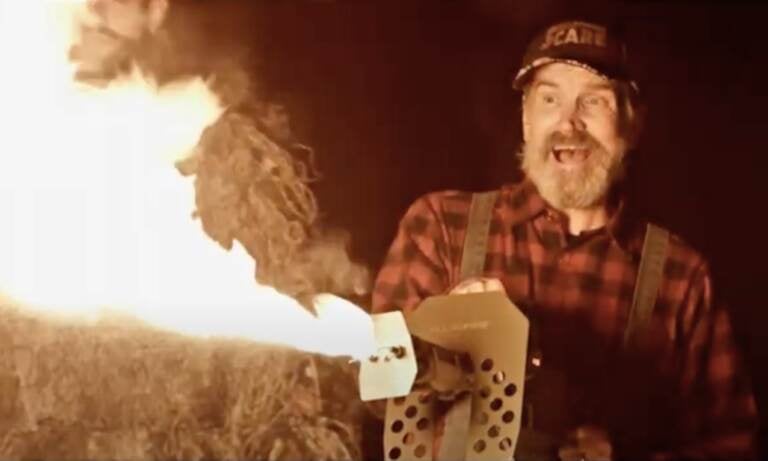
A screen image from ''Hayride to Hell.''
A Chester County farmer who also is a local elected official has made a horror movie in which a beleaguered farmer takes deadly revenge on local elected officials.
“Hayride to Hell,” co-written and co-produced by Robert Lange, was shot last winter on Lange’s farm in Willistown Township, Pennsylvania. It stars horror legends Kane Hodder (Jason in the “Friday the 13th” franchise) and Bill Moseley (“Texas Chainsaw Massacre II,” Rob Zombie’s “Firefly” trilogy).
Moseley plays a farmer named Sam who methodically slaughters his enemies trying to steal his land during a Halloween hayride attraction.
Is “Hayride to Hell” Lange’s own political fever dream?
“Yeah,” Lange laughed. “It’s fictional. You know, people think about things just arbitrarily when issues arise and you go, ‘Oh, gee, I’d like to do that kind of thing.’ And then, you know what? Let’s make a movie and see what comes of it.”
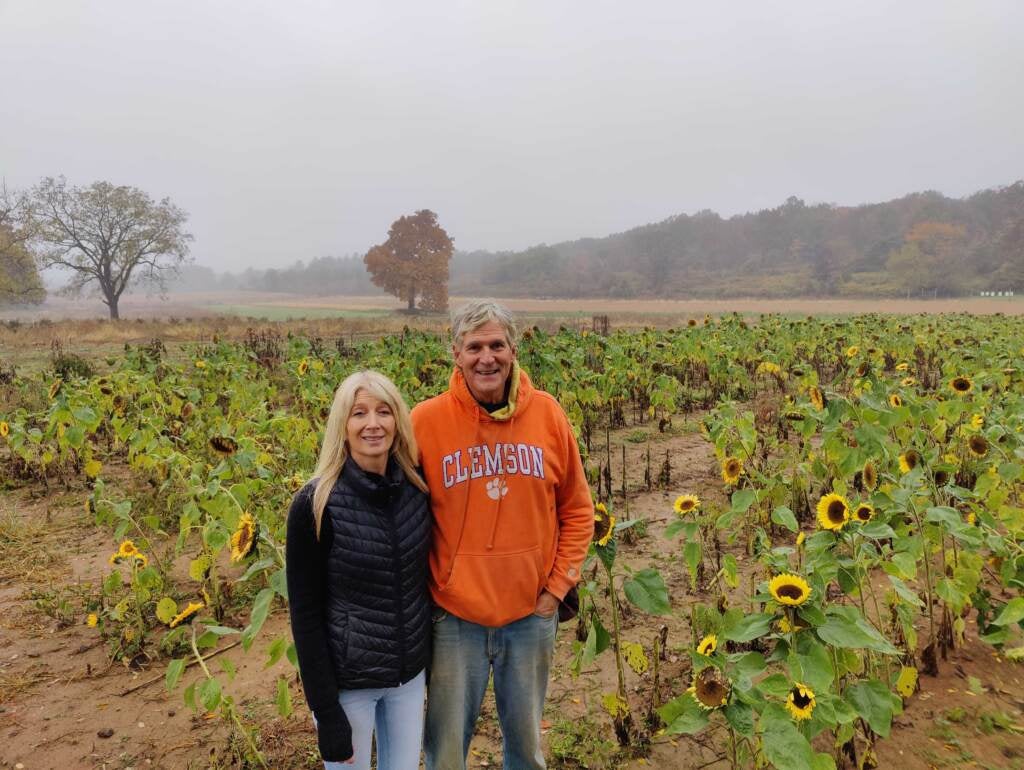
“There’s a certain amount of firsthand experience that leads a person to be creative,” said Kristina Chadwick, Lange’s co-producer and fiancée. “It has to begin somewhere.”
“Hayride to Hell” will premiere on Wednesday, Oct. 26 at the Colonial Theater in Phoenixville.
Due to popular demand, there will be an additional screening on Thursday, Nov. 17 at the Colonial Theater.
Lange, 67, is the owner and operator of Willisbrook Farm, a 200-acre farm that has been in his family since 1896, and its retail operation Sugartown Strawberries. He was named Farmer of the Year in 2014 by the Chester County Agricultural Development Council.
He has also been a member of the Willistown Township board of supervisors since 1996, with a strong interest in protecting open space from development. He was instrumental in creating an Open Land Bond Referendum, which exacts an 1/8% tax to buy and preserve land as township parkland. The tax was overwhelmingly approved by municipal voters.
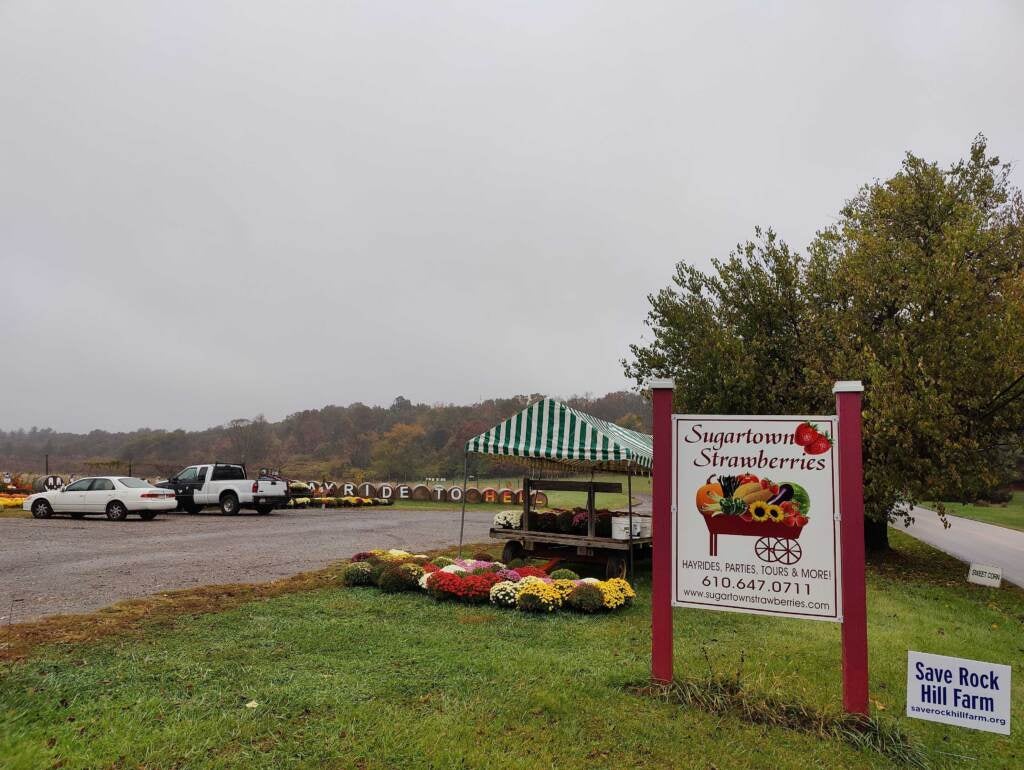
In the 1990s, Lange used to stage a spooky hayride attraction on the farm during the Halloween season, called the Sugartown Scare. It lasted five years before logistics and liabilities pushed Lange to shut it down. He has held onto all its sets and props, stored in a barn for 20 years.
“I use them occasionally for when I’m running for reelection,” he said. “I would use the scarecrows. They’d be holding up my sign saying, ‘Pick your own supervisor. Reelect Farmer Bob Lange.’”
Several scenes from Sugartown Scare come back in “Hayride to Hell.” Lange, who had never written a film before, got director Dan Lantz on board to put his script into shape.
“Initially the screenplay was going to get rid of 22 people. When we found our director he said, ‘That’s way too many people. We can’t deal with that,’” Lange said. “The body count is too high.”
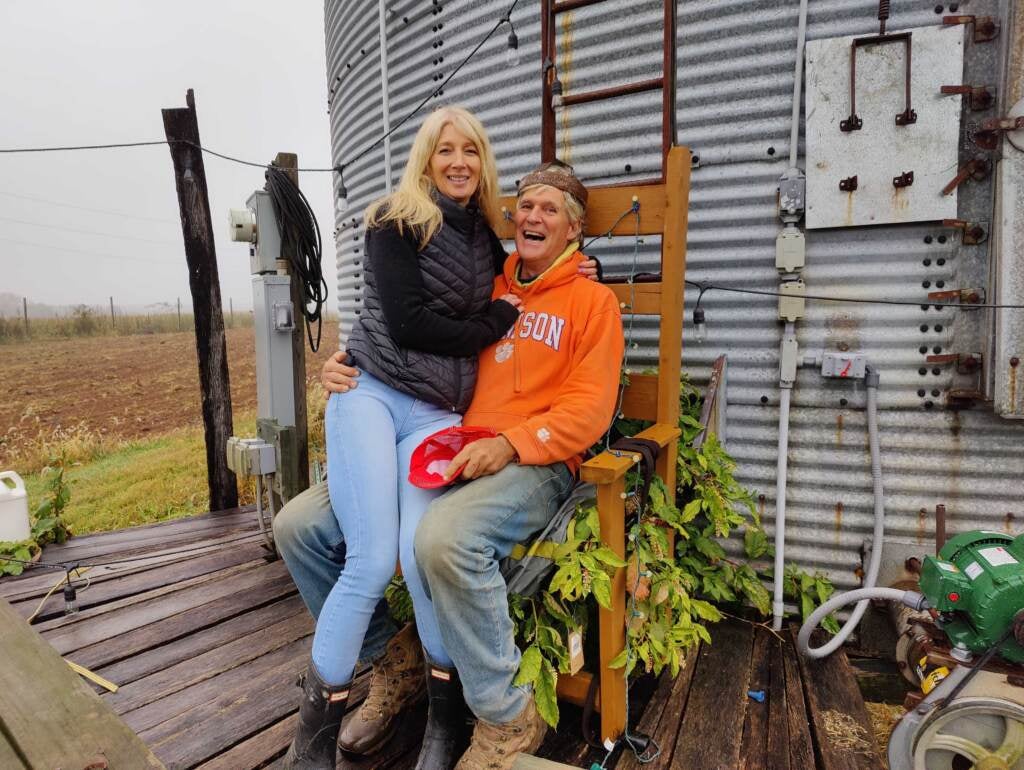
The need to preserve his family legacy, his experience in local politics, and the memory of his own scary hayride propelled Lange to create a horror concept he had never seen before: a killing spree on a farm where the sympathy lies with the murderous farmer.
The kill list includes ruthless county commissioners intent on seizing Sam’s acres, corrupt local law enforcement, and neighbors destroying property.
“When these people meet their demise, a lot of the audience I think are going to cheer because we do a back story on everybody,” Lange said. “It’s not a slash movie where you’re just killing teenagers for the sake of killing teenagers. Everyone that gets killed has done something to warrant the execution.”
“Hayride to Hell” may be unique in the annals of horror, but the impetus to make it is a familiar story: a need to save the family farm.
Lange’s grandmother was an early advocate of land easements in the 1960s when she committed 46 acres to perpetual preservation through the Natural Lands Trust (now Natural Lands). Since then Lange has committed another 58 acres to easements, which do not allow the land to be built upon by future owners.
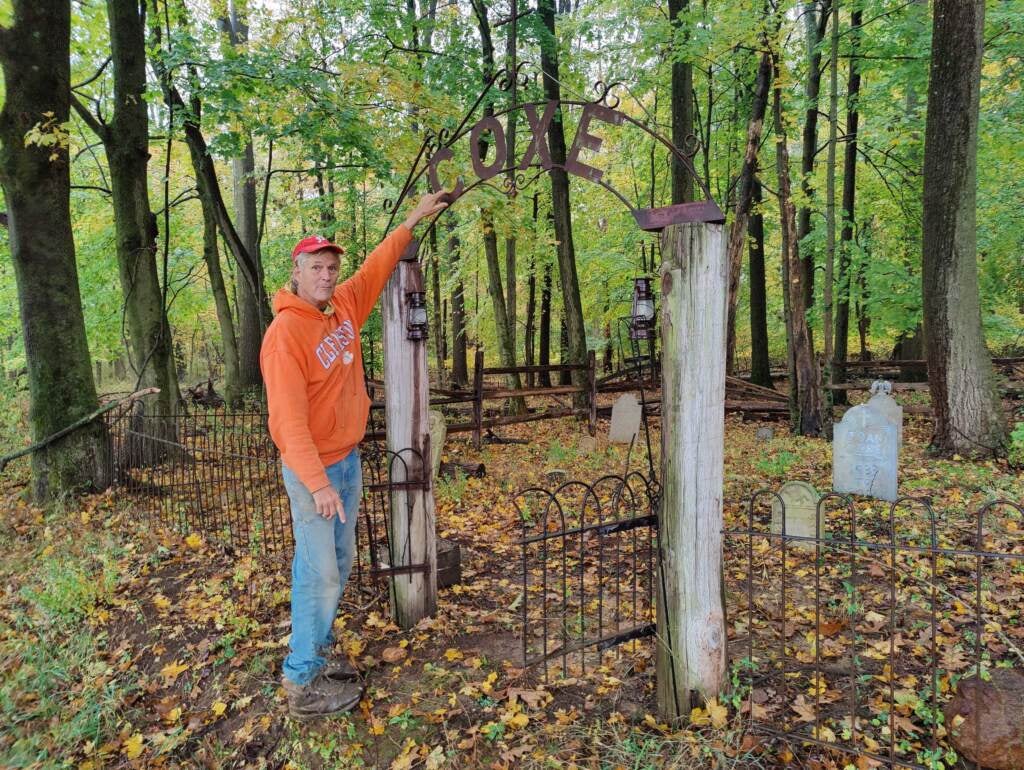
A quarter of the total land in Chester County is farmland, but that number is dropping. Since 2002, the number of acres devoted to farming has dropped 10%, according to the county’s agricultural economic development plan. Much of that is due to housing development.
Like the protagonist in his film, Lange is committed to keeping his farm out of the hands of developers. He has no children, and with no clear heirs to the family farm, he may be the end of the century-long line. To ensure his acreage is maintained as farmland into the distant future he needs to establish a fund for its ongoing stewardship.
“I thought we could do a movie that was successful and could potentially lead to a revenue stream that we could put into an endowment for the farm,” Lange said. “Some of it’s preserved in perpetuity that can’t ever be developed, but the majority is still potentially sellable down the road. I’d hate to see that. So my first and most important goal was to try to figure out a revenue source, because you can only make so much farming.”
It is a gamble to bet the family farm on a horror movie, but Lange and Chadwick are confident they have a good flick on their hands. Although it is “ultra low budget,” they said their production values are escalated by the assets already on hand as working farmers.
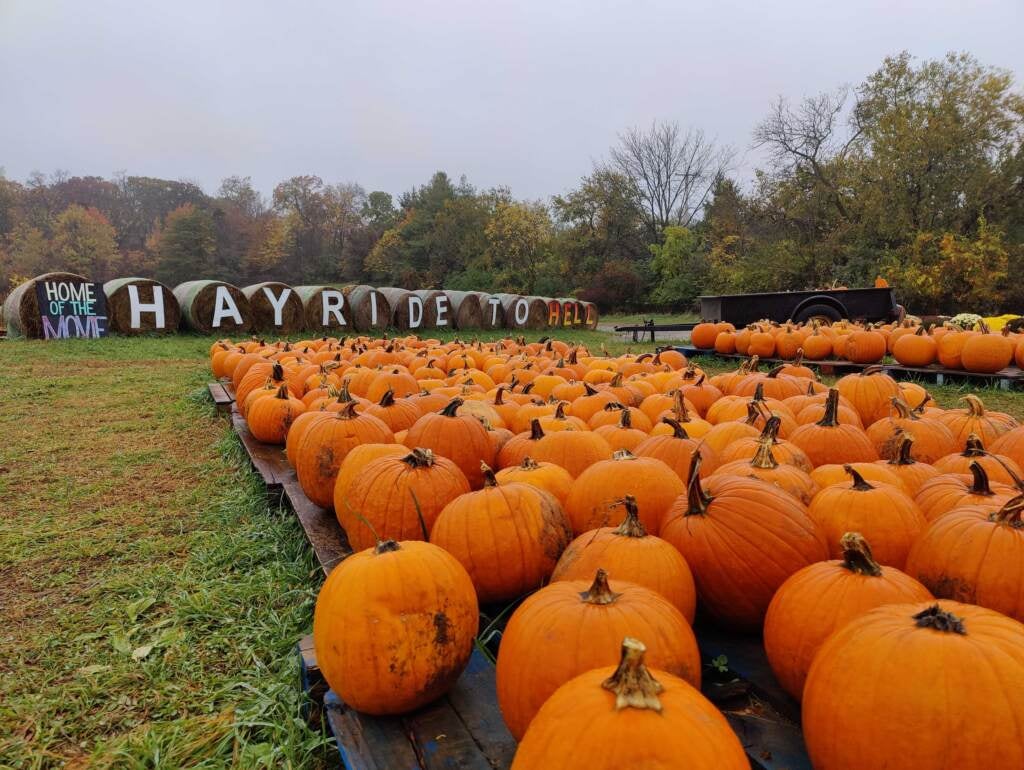
Lange said he put every piece of equipment he had toward the production, and the farm provided all of the location shooting with the exception of two office scenes.
“The farm lends itself perfectly. It’s so diverse. We’ve got a pond. We’ve got woods. We’ve got fields. We’ve got old barns, new barns. We’ve got a 300 year old oak tree. We got farm equipment,” Lange said. “A lot of my farmer friends, you know, I would need certain things and they would lend them to me. My farming friends really helped me out a lot on this.”
“We had a lot of assistance through friends and local businesses,” said Chadwick. “We had about 40 extras, really more like 50 when all is said and done, people from our community. They came out in the cold weather and everything. They were just thrilled.”
Lange is proud of the fact that “Hayride to Hell” gives moviegoers a peek into authentic farming practices.
“Farms that are in developed, urbanized areas, they have a tougher time,” he said. “The community around them is not attuned to what farming is all about. They see something that’s an annoyance.”
Lange and Chadwick bought out the Colonial Theater in nearby Phoenixville for their premiere. A few days before the screening its 600 seats were nearly sold out. They are working with a distribution company to set up a wider release during next year’s Halloween season, in the fall of 2024.
Crossing fingers, Lange is hoping for a theatrical release.
“I realize that the odds of making it successful are not great,” he said. “Why couldn’t it be us? People make it every day with a movie. Why not us?”
Lange is not holding his breath for the sequel. He said the script for “Hayride to Hell” is written with teasers for a second film if the first is successful. If it’s not, he’ll write the novel.
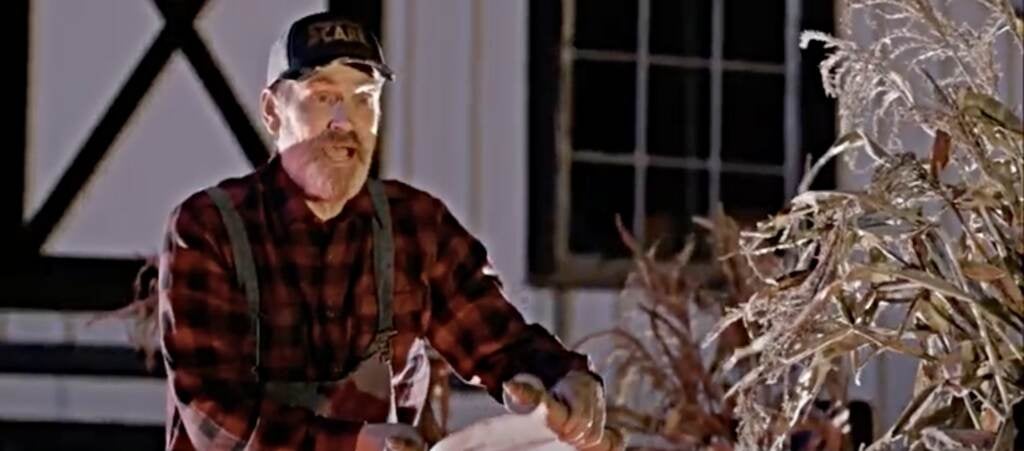

Saturdays just got more interesting.
WHYY is your source for fact-based, in-depth journalism and information. As a nonprofit organization, we rely on financial support from readers like you. Please give today.



